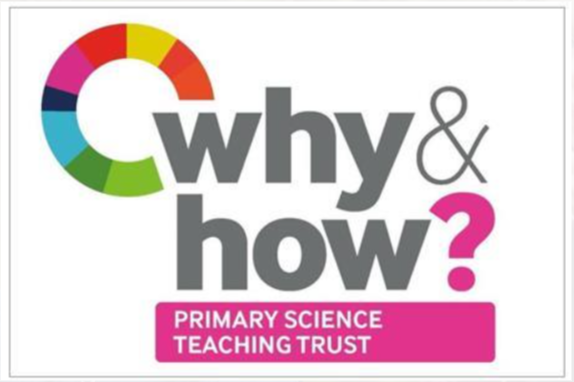- Home
- White House Farm Curriculum
- Curriculum Overview
- Science
Science
Intent
The 2014 National Curriculum for Science aims to ensure that all children:
- develop scientific knowledge and conceptual understanding through the specific disciplines of biology, chemistry and physics
- develop understanding of the nature, processes and methods of science through different types of science enquiries that help them to answer scientific questions about the world around them
- are equipped with the scientific skills required to understand the uses and implications of science, today and for the future.
At White House Farm Primary School, we want our children to be inquisitive, to ask questions and to take risk and be adventurous to explore to find the answers.
We want our children to grow up respecting and caring for their local, national and global environments as well as fostering a curiosity in the universe.
We strongly believe that science is routed in the acquisition of knowledge and its application through scientific skills. The National Curriculum Science Programme of Study outlines what knowledge children will acquire and develop throughout their Primary years.
We passionately believe that not only should children have a sound knowledge and understanding of the concepts covered in the National Curriculum but also that the Working Scientifically skills are built-on and developed throughout their school career so that they can use equipment, conduct experiments, build arguments, and explain concepts confidently and continue to ask questions about their surroundings.
At White House Farm Primary School, we want our children to be aspirational, knowing that they can leave their mark on world as environmentalists, virologists or even astronauts
Implementation
Teachers create a positive attitude to science learning within their classrooms and reinforce an expectation that all children can achieve high standards in science. Our whole school approach to the teaching and learning of science involves the following.
- Working with external experts at The Primary Science Teaching Trust, White House Farm Primary School has created a long-term Science plan for the teaching of the key areas identified in the National Curriculum are taught across each key stage.
- Specific areas of the Science curriculum are mostly taught in half termly blocks with teachers dedicating at least 1.5 hours of their weekly lesson time to science teaching. However, some units of work, such as Seasons (KS1) and Plants (KS1) are broken into shorter units of work which are taught throughout the year to ensure that teachers can take advantage of changes to the local environments. For example, planting bulbs in Autumn ready for flowering and observation in Spring. In addition, where Science units can be taught or extended through Talk 4 Write unitts in English, teachers may, with the Science Leaders approval, block lessons into a week or fortnight.
- All teachers planning starts with The Association for Science Education’s PLAN and Assessment resources which support teachers to identify prior learning, misconceptions, and key learning objectives.
- Teachers break these key learning objectives into a sequence lesson, paying careful attention to how to pair substantive knowledge with disciplinary knowledge.
- Short term planning is supported by quality schemes of work (Science Bugs, Explorify, TAPS)
- Through our planning, we involve problem solving opportunities that allow children to find out for themselves. Children are encouraged to ask their own questions and be given opportunities to use their scientific skills and research to discover the answers. This curiosity is celebrated within the classroom. Planning involves teachers creating engaging lessons, often involving high-quality resources to aid understanding of conceptual knowledge. Teachers use precise questioning in class to test conceptual knowledge and scientific skills, which are outline in the Working Scientifically criteria.
- Teachers demonstrate how to use scientific equipment, and the various Working Scientifically skills to embed scientific understanding.
- Teachers find opportunities to develop children’s understanding of their surroundings by accessing outdoor learning and workshops with experts.
- At White House Farm Primary School, we build upon the learning and skill development of the previous years including EYFS. Children in EYFS develop the foundation knowledge required to further their learning in KS1. Teachers use the same planning resources as well as the school’s own Science Progression Document to support their planning and teaching of science across the EYFS Curriculum. Science learning can be discrete or part of continuous provision opportunities.
Impact
At White House Farm Primary School:
- Science is assessed through plenaries, quizzes, end of unit tests and science investigations.
- Teachers use the moderation materials provided by The Association for Science Education as well as White House Farm’s Science Progression Document to identify the knowledge learnt across the academic year as well as their application through scientific enquiry.
- School leaders and subject leaders work with The Primary Science Teaching Trust who support with planning, training. quality assurance and moderation through a Science Cluster.
- School leaders and subject leaders carry out regular work scrutiny and moderation across Sapientia Education Trust.
PSTT Sapientia Cluster

We are delighted to have been granted the prestigious opportunity to work in partnership with the Primary Science Teaching Trust in the formation and running of a science cluster group. White House Farm Primary will work with 10 other primaries schools across the trust. This is a fantastic opportunity for all of us to be working with this highly-esteemed scientific organization who will not only grant us funding but also provide us with invaluable advice and professional support. Our science subject lead will work collaboratively with those in the rest of the Trust. We will be sharing expertise and working together to raise the profile of science within and beyond our local communities. PSTT Clusters are designed to facilitate sustained, strategic improvement in this hugely important subject and we are very grateful to the support we have already received from our regional mentor, Claire Seeley and the project director, Peter Sainsbury. Please keep visiting this page and reading our newsletters for updates.

